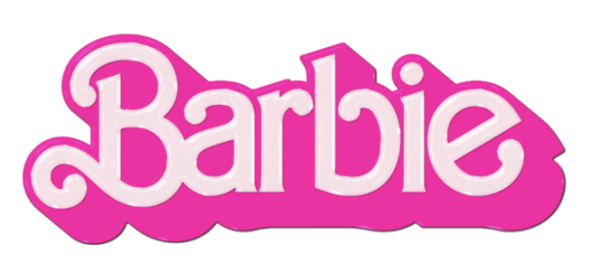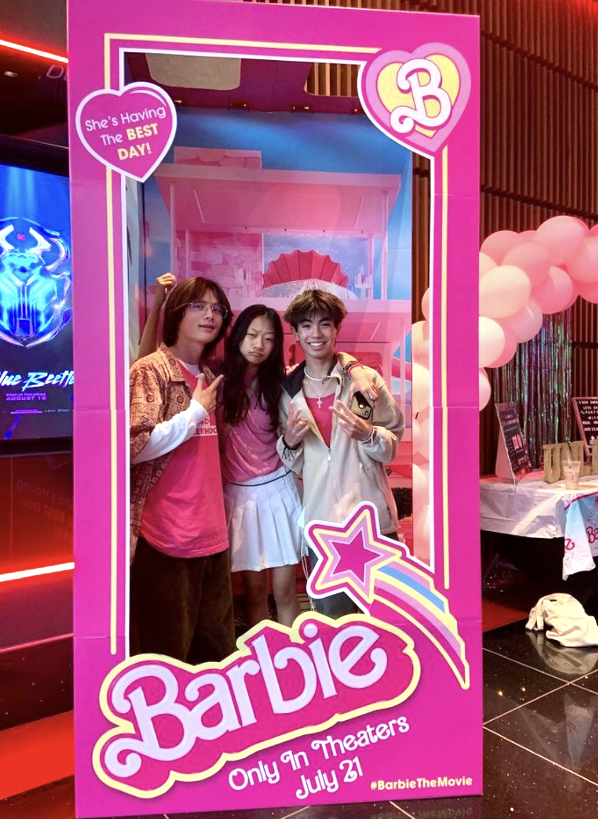“We have to always be extraordinary, but somehow we’re always doing it wrong” – Gloria (America Ferrera).
Quotes from Gloria’s monologue and many other impactful lines from Barbie discuss the struggle of living in today’s society as a woman. For any who have not seen the film – here is a quick preview:
Barbies and Kens have colorful lives in their matriarchal “Barbie Land,” immune from real-world, societal problems. As they join the real world and soon encounter reality, stereotypical Barbie and Ken set out on journeys of self-discovery. Barbie presents these opposing social structures to highlight the shortcomings of patriarchy. SHC students connected with these themes. For example, Chelsea Leung ‘26, member of Women’s Empowerment Catholic Community Cohort (WECCC), “appreciated the underlying message of feminism – it has certainly elevated women in the acting industry as well as in the media.”

The movie comments on girlhood in the “real-world”. America Ferrera’s speech as Gloria in the movie connects with people throughout the world. Some impactful words from the speech include: “It is literally impossible to be a woman. It kills me that you don’t think you’re good enough. […] I’m just so tired of watching myself and every single other woman tie herself into knots so that people will like us. And if all of that is also true for a doll just representing women, then I don’t even know.” The film criticizes society’s perception of girlhood and highlights the highs and lows of being a woman.
The Emerald discussed the movie with Ms. Erin Kayser, Instructor of Social Studies and Kiva Club moderator. She told the Emerald, “The thing I loved most about the movie was it got me thinking beyond the rolling credits at the end. My mom and many other women growing up in the 50s were taught that as soon as you get married or have kids, you stop working. As the 70s rolled along, more women came to discover that […] you can go to work, you can have a successful career, and you can raise an amazing family. My mom was clear that I could do whatever I wanted.”
Isabel Merriman, member of the WECCC, tells the Emerald that gender expectations “put me at a disadvantage due to the underlying biases that most people have against women. Even if there are many people advocating for women’s equality, it will be hard to remove that bias that has been built up for so many years. However, as we raise awareness… this bias will decrease and go away, hopefully making future options very accessible for everyone.”
Ms. Kayser continues, “America Ferrera’s monologue at the end of the movie was absolutely my lived experience. I don’t know where the balance is but I do know that as women, we are constantly trying to find the right message to give to young girls.” There might not be a fix, and maybe that is the point. “It’s life and it’s messy. […] The last line of the movie is completely perfect. The beauty of being a woman and what you do with your body, life and spirit –that is the story.”
Although Barbie spoke to many female-identifying students, SHC male-identifing students also connected with the movie’s themes. Valentino Vitolo-Giorni ‘26 responded to the online poll released to all students, “The film’s narrative skillfully wove together adventure, friendship, and personal growth, creating an engaging experience for viewers of all ages.” He points out that the relatability of the characters’ journeys is long lasting for audience members.

According to Variety, Barbie officially had the biggest opening weekend grosses for a female director in history, surpassing the releases of both Captain Marvel and Wonder Woman. This encourages younger female audiences that they are capable of the same accolades as men in the film industry. As reported by The Guardian, during the movie’s opening weekend, Barbie grossed 155 million dollars. It is the first movie directed by a woman (Greta Gerwig) to reach 1 billion dollars at the box office. Truly an awesome achievement for women in the entertainment industry!
Many female-identifying students at SHC responded to the movie’s message, with varying opinions:
“The movie touched on so many topics and made so many girls feel heard” (Charlotte Duncan ‘26).
“I had some issues with coming to terms with the highly commercialized feminism and the portrayal and stereotypes of the Kens” (Simran Phojanakong ‘26).
“I loved it so much. I had a deeper connection to the movie because it talked about girlhood and what a woman experiences almost everyday. It gives perspective to people who don’t experience it” (Jaiden Magat ‘26).
“I loved it. I think it did a beautiful job in portraying the reality of womanhood and spoke volumes about the female experience of reversing the patriarchy in ‘Barbie world’ so that the Ken’s almost played the role/were treated how women are in the real world. Although it sparked a lot of controversy, I think that every response shows that the reality that women have to live in is only appalling when it is endured by men” (Isabella Rinaldi ‘24).
“I thought it was an absolutely amazing movie that portrayed the stereotypes of women and how some people see those tied to Barbie. It was definitely not what I expected, I didn’t see all the underlying messages coming, but I thought it was an incredible movie that will definitely go down in history” (Mattigan Tanko ‘26).
Barbie creates an open conversation about womanhood thriving amidst the patriarchy. Despite the movie’s controversy, Barbie speaks and empowers many women throughout the world.








